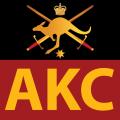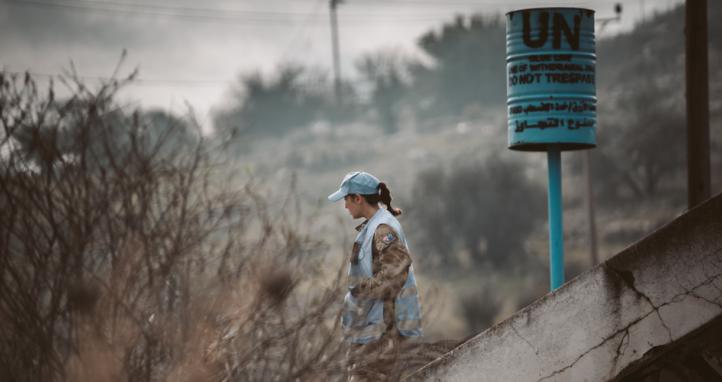This article was published in Smart Soldier 65, August 21. You can access the full edition on the DPN in the Army Lessons Online page. (Tip: Search for Army Lessons and select the second search option)
The ADF began lifting the restrictions on employment categories in 2013 with all ADF employment categories open to current serving ADF women since 2014. Direct entry to all combat roles has been open to women entering the ADF since January 2016. With five years of experience, now is a good time to discuss what it’s like to be a female combat soldier and how to prepare for such a role.
An RFI was sent out to Army and three members responded; two officers and a soldier from two infantry battalions and an armoured regiment. This is the final of the three articles.
This article provides one perspective from ‘boots on the ground’, that may be of interest for all soldiers, regardless of corps. The opinions and experiences expressed within the article are those of the author.
What are the best parts of being a combat soldier?
I did not have to change my personality, leadership style or who I am to perform the role. With the physical demands, it was satisfying that I was able to meet these requirements (with a lot of hard work). Being a part of an infantry company within a battalion and the pride you develop for your platoon and your company. The soldiers that I worked with were the best part of the job, their personalities and their intelligence. I learnt so much from my senior and junior NCOs who I still remain in contact with, and the friends I have developed as a result of my posting. Sharing hard experiences develops lifelong friendships. After listing all of the ‘best parts’ I realised they are not unique to infantry/combat corps and would be seen in all corps across Army.
What are the worst parts of being a combat soldier?
2019 was a period when Army obsessed with female combat soldiers. Also, opportunities for things such as ROSO[1] and an ability to corps transfer must be the same for all soldiers regardless of gender.
What are the biggest challenges for a female combat soldier? How have you overcome these?
Proving to myself that I was worthy to lead infantry soldiers was the biggest internal challenge I faced. I overcame this challenge by making sure I always did everything to the best of my ability and I was also mentored by very competent SNCOs and fully supported by my JNCOs and soldiers in all the roles I filled during my command time. The officers of my unit were also excellent and again mentored me, and offered me great opportunities to learn, which helped me to develop confidence in myself as a combat corps leader.
Army needs to allow females to naturally select to enter a combat corps and not be told by a Defence Force recruiter that “joining infantry is like going to boot camp”.
What has been the most rewarding experience(s) for you as a combat soldier?
Seeing my soldiers happy.
What do female soldiers have to do in order to prepare to be a combat soldier?
Talk to soldiers who are in the role, and see if you can interact with and relate to infantry soldiers, and are comfortable being in a position where you may be the only female in the conference room/ section/platoon.
With your BFA, don’t aim to be at the female standard, aim to be well above. At the bare minimum you should be at the male standard. This puts you on an equal platform with your male peers[2]. I aim to complete the minimum male standard or better in all my fitness assessments. I know a female infantry officer who could do 72 cadence push-ups and squats 100kg. One of the soldiers at my battalion did 72 push-ups in her recent BFA. Be a quiet achiever, don’t promote/think of yourself as a female infantry soldier, think of yourself as a soldier.
How big a part does physical strength play in day-to-day activities of your job? What type of training is required to get to this level? Can you recommend a program?
Your mind will fail you before your body, so you should focus on training your mind first and foremost.
You need physical strength to do your role, support your team and provide your commander with the capability they require. You need to develop muscle endurance. You should do weight training (I am talking weight lifting, not pump class), and focus on your hamstrings, core and shoulders. You need to have a good cardio fitness base that allows you to maintain a level of cognitive ability when ‘fire and moving’ carrying a minimum of 20kg of equipment. I would recommend a mix of strength training, torsion bar workouts and Maximum Aerobic Speed (MAS) training as well as pack marching (which is as good for your mental strength as well as physical).
What tips do you have for being a female combat soldier out in the field?
I clip up the comforter on the pack, it helps put the weight on my hips and takes it off my shoulders (I don’t look like an absolute operator, however it really helps). Get a smaller stalk belt, as torso real estate is limited for me. There is no weight limitations, I carried 40kg for PESA. If you train properly, the limitations are only in your head.
What strategies have you found to build respect and see the value in the gender neutral team?
As I’ve mentioned before, behave like a soldier and not a female soldier and always put in your best effort with everything you do. If you show your platoon (as any new soldier has to regardless of gender) that you can do your job and are a team player then you will not have a problem becoming part of the team.
How can you improve your performance as a combat soldier?
Continue to push yourself physically and mentally, read and understand how the battlespace is changing and how you can adapt as a combat soldier.
Do you recommend any reading, or other material, to improve your PME?
A book titled Ashley’s War[3], she was humble, highly competent, determined and strong (both physically and mentally) and I think all females looking to go into a combat corps should aim to be like her.
Army Lessons would like to thank the three authors who responded to this RFI, and shared their valuable experiences.









